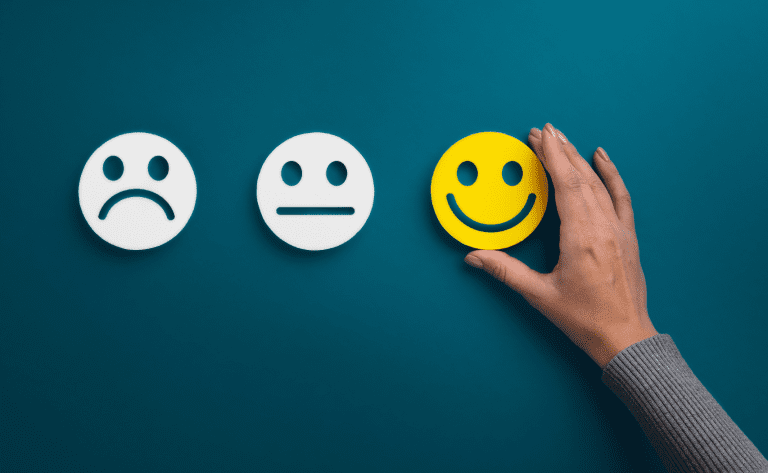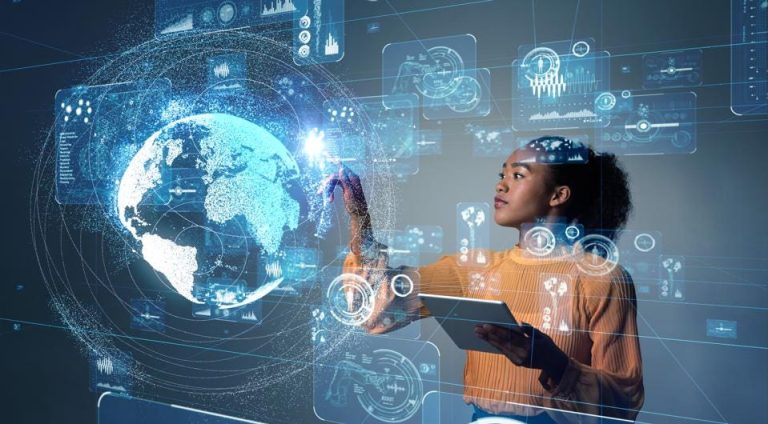In an era where the war for talent is fiercer than ever, the ability to attract and retain top-tier professionals has become one of the main aspects of organizational success. Talent acquisition is no longer just about filling positions; it’s about strategic recruitment that aligns with long-term business goals. Companies continually seek innovative ways to enhance their hiring processes to ensure they bring in the best possible talent.
Amidst this evolving landscape, Artificial Intelligence (AI) has become a transformative force in modernizing recruitment practices. AI is reshaping how companies identify, engage, and hire candidates by introducing automation, advanced data analytics, and intelligent decision-making tools.
Utilizing many AI tools, such as an ad maker, you can promote high-priority job announcements and personalize them as much as you need. These technologies simplify various aspects of talent acquisition, from sourcing and screening to interviewing and onboarding, making the process more efficient and effective. As AI continues to integrate into recruitment, it is opening the way for a future where hiring is faster, fairer, and more aligned with the dynamic needs of businesses.
Evolution of Talent Acquisition
Traditional Recruitment Methods
The field of talent acquisition has undergone significant changes over the years. Traditional recruitment methods, which relied heavily on newspaper advertisements, job fairs, and personal networks, often proved to be time-consuming and inefficient. Recruiters had to filter through piles of resumes manually, conduct numerous phone screenings, and coordinate face-to-face interviews, which could stretch the hiring process over several weeks or even months.
Digital Transformation
With the advent of the internet, the recruitment process began to transform. Online job boards and professional networking sites like LinkedIn have made it easier for recruiters to reach a broader audience and for job seekers to discover opportunities. However, these digital tools still required a significant amount of manual effort to manage the influx of applications and schedule interviews.
In addition to digital transformation in recruitment, using the best AI business plan generator can help organizations strategically plan and optimize processes. This tool ensures that recruitment efforts are aligned with overall business goals and growth objectives, enhancing efficiency and effectiveness.
Furthermore, leveraging an SMM panel can further streamline the process by automating social media marketing efforts, helping recruiters effectively promote job openings and engage with potential candidates across various platforms.
The Role of AI in Recruitment
The integration of Artificial Intelligence (AI) into talent acquisition has further revolutionized the recruitment process. AI-driven tools now automate many of the repetitive tasks that once slowed down recruiters, such as screening resumes and scheduling interviews. Additionally, AI enhances candidate sourcing by analyzing large datasets to identify the best matches for open positions.
Online Meetings and AI-Enhanced Interviews
Moreover, the rise of online meetings has significantly impacted how interviews and candidate assessments are conducted. With AI-powered video interview platforms, recruiters can conduct interviews remotely and use AI to analyze candidates’ responses and facial expressions, providing deeper insights into their suitability for the role.
Personalized Job Announcements
Utilizing AI tools such as an ad maker, recruiters can promote high-priority job announcements and personalize them to attract the right talent. These AI tools also track clicks and engagement, providing valuable data that helps optimize job postings for better reach and effectiveness. This shift towards AI-enabled recruitment processes has increased efficiency and improved the quality of hires, allowing organizations to stay competitive in a rapidly evolving job market.
How AI Transforms Talent Acquisition
Automation of Repetitive Tasks
AI has revolutionized the talent acquisition process by automating repetitive tasks such as screening resumes and scheduling interviews. This automation allows recruiters to focus on more strategic activities and significantly reduces the time-to-hire.
Enhancing Candidate Sourcing
AI-powered tools enhance candidate sourcing by analyzing large datasets to identify the best matches for open positions. These tools can go through numerous profiles to find candidates with the desired skills and experiences, even suggesting those who may have been overlooked in traditional searches.
Improving Candidate Assessment
AI-driven assessments and skill tests provide a more objective evaluation of candidates’ abilities. For example, AI can analyze video interviews, assessing the content of the responses and non-verbal cues. This can be particularly beneficial in identifying candidates with traits that align with specific personality types, such as INFJ, who may exhibit strong empathy and idealism that are valuable for certain roles.
Enhancing Candidate Experience
AI enhances the candidate experience by providing personalized communication and timely updates throughout the recruitment process. Chatbots, for example, can answer candidates’ questions, schedule interviews, and provide feedback, ensuring that candidates feel valued and informed at every stage.
Promoting Job Announcements
Utilizing AI tools such as an ad maker, recruiters can promote high-priority job announcements and personalize them to attract the right talent. These tools also track clicks and engagement, providing valuable data to optimize job postings for better reach and effectiveness.
Email Campaigns and Verification
AI can greatly improve the effectiveness of recruitment email campaigns. Segmenting your email list allows recruiters to target specific groups of candidates with customized messages, increasing the likelihood of engagement. Additionally, AI-driven email verification ensures that contact information is accurate and up-to-date, reducing the bounce rate and improving the overall success of email outreach efforts.
AI’s integration into talent acquisition is transforming how companies approach hiring, making the process more efficient, fair, and aligned with the needs of both the organization and the candidates. This shift improves the quality of hires and ensures a better fit between the candidate’s personality traits and the roles they are being considered for.
Benefits of AI in Talent Acquisition
Increased Efficiency and Reduced Time-to-Hire
AI significantly boosts efficiency in the recruitment process by automating repetitive tasks such as resume screening, interview scheduling, and candidate follow-ups. This automation reduces the time-to-hire, allowing recruiters to fill positions more quickly and focus on strategic decision-making.
Improved Quality of Hire
AI enhances the quality of hire by utilizing advanced algorithms to match candidates’ skills, experiences, and personality traits with job requirements. For instance, AI tools can identify candidates with specific traits, such as INFJ personalities, that align with roles requiring strong empathy and idealism. This precise matching leads to better job performance and increased employee satisfaction.
Bias Reduction in Recruitment
One of the significant advantages of AI in talent acquisition is its ability to reduce unconscious bias in the recruitment process. AI algorithms evaluate candidates based on objective criteria and data, minimizing the influence of human biases. This leads to a more diverse and inclusive workforce, as hiring decisions are made based on merit rather than subjective impressions.
Enhanced Data-Driven Decision Making
AI provides recruiters with valuable insights through data analytics, enabling data-driven decision-making. Tools that track clicks and engagement on job postings and email campaigns provide actionable data to refine recruitment strategies. Segmenting your email list and employing email verification further enhance the effectiveness of communication, ensuring that messages reach the right candidates and that contact information is accurate.
Challenges and Ethical Considerations
Ethical Concerns Around AI in Recruitment
The use of AI in recruitment raises several ethical concerns. While AI can automate and streamline hiring processes, it also poses questions about transparency and accountability. Candidates may feel uneasy about being evaluated by algorithms without understanding the criteria or processes involved. Ensuring transparency in how AI tools are used in recruitment is essential to maintain trust and fairness.
Potential Biases in AI Algorithms
Although AI has the potential to reduce human biases, it is not entirely free from bias itself. AI algorithms are trained on historical data, which may contain inherent biases. If not carefully monitored and adjusted, AI systems can perpetuate or even amplify these biases. For example, an algorithm trained on data that reflects past discriminatory hiring practices could inadvertently continue those patterns. Continuous evaluation and updating of AI models are necessary to mitigate these risks.
Data Privacy and Security Issues
AI in recruitment relies heavily on the collection and analysis of personal data. This raises significant concerns about data privacy and security. Organizations must ensure that they comply with data protection regulations and implement robust security measures to protect candidate information. Unauthorized access, data breaches, and mishandling of personal data can have severe legal and reputational consequences.
Mitigation Strategies and Best Practices
To address these challenges and ethical considerations, organizations should adopt several mitigation strategies and best practices:
- Transparency and Communication – Communicate to candidates how AI tools are used in the recruitment process and the criteria they evaluate. This transparency helps build trust and ensures candidates are aware of the methods being used.
- Regular Audits and Updates – Conduct regular audits of AI algorithms to identify and address any biases. To improve accuracy and fairness, continuously update AI models with new, unbiased data.
- Bias Mitigation Techniques – Implement techniques to detect and mitigate biases in AI systems. This may include using diverse training datasets, involving diverse teams in the development process, and applying fairness constraints in algorithm design.
- Data Protection Measures – Ensure compliance with data protection regulations such as GDPR. Implement strong data security protocols to protect candidate information, including encryption, access controls, and regular security audits.
- Ethical Guidelines – Develop and adhere to ethical guidelines for the use of AI in recruitment. Establish an ethics committee or advisory board to oversee AI deployment and ensure ethical standards are maintained.
The integration of Artificial Intelligence in talent acquisition has guided a new era of efficiency and effectiveness in the recruitment process. However, the adoption of AI in recruitment is not without its challenges. Ethical concerns, potential biases in AI algorithms, and issues surrounding data privacy and security require careful consideration and proactive management. Organizations must implement strong mitigation strategies and adhere to best practices to ensure that AI is used responsibly and ethically.
As we move forward, the continuous evolution of AI technologies will likely bring even more sophisticated tools and methods to talent acquisition. Organizations that embrace these advancements while maintaining a strong focus on ethical standards and transparency will be best positioned to attract and retain top talent, driving their success in the competitive business environment.
Guest writer.
















